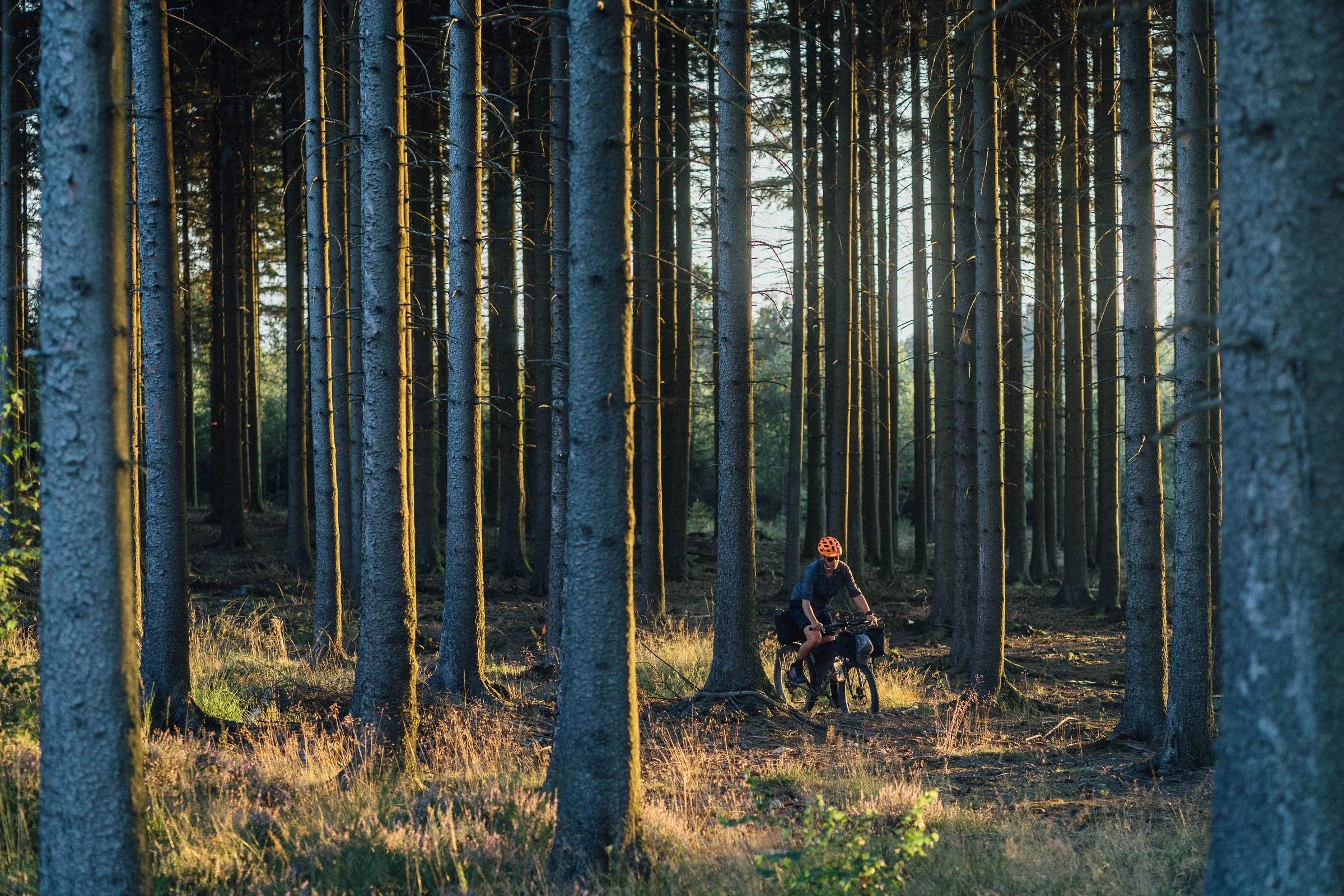Know Your Own Pace: Bikepacking and Planning
The sun finally descended between the trees and below the horizon line, taking the warmth and light that had kept us steady with it. My partner and I were still miles away from our campsite, having overestimated what our average pace would be loaded up with gear on gravel. The dirt and rocks crunched beneath our tires, and as the darkness set in our path was illuminated solely by the narrow beams of our headlights.
This was our first experience bikepacking, and our first experience in bear country. As we rode on we occasionally caught glances in our peripherals of what felt like eyes, staring at us from deep within the treeline. Slight concern started to be replaced by panic; the last thing we wanted to do was just set up camp on the roadside, but that may soon be our only option. Though our headlights provided us with ample light for night riding on pavement, they struggled to illuminate every branch and large rock on the road, and we had to slow our pace even further to compensate.
The fear that crept up from our stomachs, fear of creatures watching us from within the dark forest, manifested itself in loud one liners between us. Though initially a defense mechanism to scare off an unwelcome bear, yelling ridiculous phrases soon became more and more hilarious, and pretty soon we had nearly forgotten the frightening thoughts that had nearly stopped our progress.
Eventually we spotted the entrance to the campground ahead, a single lamp cast light upon the sign like a beacon in the night. Pedaling through the gate with the last of our strength, and winding around the entrance road we practically collapsed off our bikes on reaching our campsite, exhausted from the events of the day. After quickly setting up the tent, we split a pack of ramen as a late night snack and crawled into our sleeping bags, finally reaching our destination.
Bikepacking elicits a certain feeling of freedom like no other. It's faster than backpacking, allowing you to experience a larger expanse of terrain and nature. Unlike camping by car or van though, your journey is self-powered, and you can only rely on yourself to make it to your next night’s destination. It requires a deep knowledge of your own limits, and if you don’t know your limits you’ll be forced to learn them along the way. This is why proper planning is essential for the success of the trip, for both beginners and veterans alike.
Planning isn’t just picking out a route either. It's important to go on long rides before your trip, and calculate your pace so you know how many miles you can comfortably cover in a day. If you can ride at a pace of 15 miles per hour, you should assume you can ride at half of that pace when loaded up with gear and on unpredictable terrain. Starting off early in the day is also important as well. On our first day of the trip we didn’t get going until the afternoon, which in hindsight was a huge mistake.
This isn’t to say you should overplan, stress every detail, and let your anxiety run wild. There is something to be said about the exhilaration that comes from not knowing what will happen next, the sense of adventure that makes things like bikepacking so attractive to the human spirit. Plan just enough to make sure you have food, a place to sleep, and are prepared for emergency situations like your bike breaking or bad weather that could leave you trapped or in a dangerous spot. Once you have those pieces securely in place, the rest of the adventure will fill itself in. When you don’t have to worry about the basics of survival, you can make that extra stop at the weird local theme park, the fun three mile singletrack detour, or spend an hour at that roadside cafe with the best sandwich you’ve ever eaten. Planning the basics gives you the freedom to make those memories you’d only stumble upon by accident, the truly unexpected things that make it an adventure.
The next morning we emerged from the tent with half open eyes, still recovering from our violent collapse into sleep the night before. Turning to look across the road, we were finally able to see the full extent of the campground, which had been obscured by darkness when we arrived. In front of us lay a small lake, tiny waves rippled in the wind and reflected light from the rising sun back at us like a flickering flame. As we walked up to the edge of the lake, we could peer down through the nearly transparent water at the bottom which was coated in small pebbles, brown, red, and dark gray in color. Tiny fish were gliding back and forth across the water, and scattered as we dipped our feet into the cool lake. Standing in the warm sun, refreshing water swirling around our feet, the difficulties of the night before were soon nearly erased. This is what adventure is all about.
